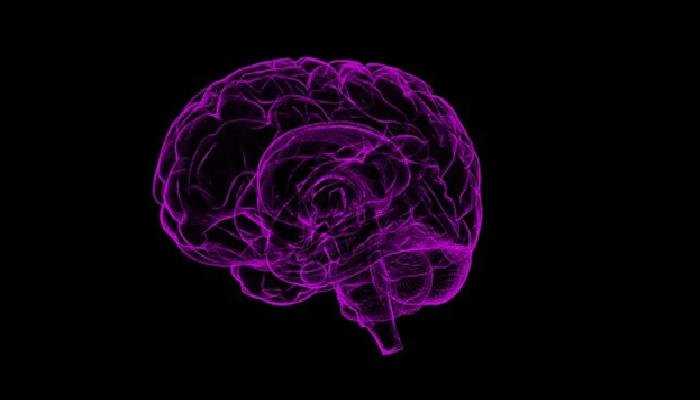Role of acetylcholine in the body

If you don’t know what acetylcholine does in your body; don’t worry, we have got you sorted! This article will give you a complete and comprehensive overview of acetylcholine’s role in your body. In addition, we will discuss how kratom facilitates the same. A reflection of kratom’s demand is the vast number of searches for ‘kratom near me.’

What is Acetylcholine?
Acetylcholine is a chemical that is essential for a variety of bodily functions. It is a neurotransmitter that transmits signals between neurons in the central and peripheral nervous systems, which contracts smooth muscles, dilates blood vessels, increases bodily secretions, and slows the heart rate.
Acetylcholine serves a variety of roles in the body. It is found in all motor neurons and causes muscles to contract. The actions of this vital neurotransmitter are involved in all of the body’s movements, from stomach and heart movements to the blink of an eye.
What role does acetylcholine play in the body?
It plays a significant role in the body, and it is vital too. Some of the roles that acetylcholine plays for and in the human body are as follows:
- The Central Nervous System
Acetylcholine is essential in the central nervous system because it functions as a neurotransmitter and a neuromodulator. As a result, it has the potential to increase motivation and feelings of fulfillment and pleasure. Acetylcholine also has an arousal-related activity. This interaction with motivation also includes actions and reactions. Acetylcholine’s action in the nervous system allows it to connect thoughts with actions, which means that it converts thought patterns into movement. Because of all these effects, acetylcholine is a necessary component of the fight-or-flight response. As a result, these actions are critical for productivity, task completion, recognition, and physical and mental health. Not only that, but acetylcholine inactivation or blockage can cause severe side effects and problems in the central nervous system. Too much acetylcholine, on the other hand, can cause severe central nervous system problems.
- Memory and Learning
Some medications that influence acetylcholine activity are used to treat Alzheimer’s disease. There is also evidence that acetylcholine can help with memory in otherwise healthy adults. Acetylcholine affects synapses, which are essential for making long-term connections to experiences. When acetylcholine is available, we can retain brain plasticity to continue storing new information and confidently recall memories. Recollection is an essential aspect of learning and should not be overlooked as an advantage of adequate acetylcholine concentrations. Furthermore, when we improve our learning and memory, we tend to have vastly improved cognitive function in other areas simultaneously. Our cognitive and work performance is heavily reliant on the ability to store and retrieve information, and acetylcholine is required for these processes.
- Sleep
Acetylcholine, a neurotransmitter, regulates natural sleep cycles, sleep balance, and mental energy. Acetylcholine neurons collaborate with other neurotransmitters to promote quality sleep and wakefulness. According to research, acetylcholine neurons increase during waking and decrease and suppress during sleep, particularly slow-wave sleep. Increased acetylcholine levels in people with low levels can have a stimulating effect that is less likely to cause difficulty sleeping than other stimulant drugs or medications. Furthermore, acetylcholine promotes sleep and has been linked to cognitive benefits, increasing the efficacy of supplements containing acetylcholine as a nootropic. Finally, while acetylcholine levels are generally lower during sleep, there is an increase during the most critical type of sleep, REM. It can assist you in processing information and memories from the previous day without disrupting your sleep cycle or causing drowsiness the following day. So, while acetylcholine may not help with insomnia, it can certainly keep you on a regular sleeping schedule better than other options.
- vigilance and alertness
One of the most desired effects of acetylcholine is increased concentration, which promotes alertness and mental energy. According to the researchers, the correlation is not causal, with acetylcholine playing a significant role in stimulating focus and attention span. This concentration, which is associated with higher levels of acetylcholine, also provides a mechanism that can help limit distraction. It allows us to focus for more extended periods, but it also allows us to ignore potential distractions better than people with lower levels of acetylcholine. While most of this evidence comes from animals and people with attention-related health issues, many experts believe these effects can also benefit healthy humans. Acetylcholine production and release can also aid in the fight against feelings of weakness.
- Muscles
Acetylcholine, which is required for muscle contraction, is used by systems. Acetylcholine is required by the human peripheral nervous system to properly activate muscle function. When something blocks acetylcholine, it can cause muscle weakness and, in some cases, paralysis. When the brain sends a signal to neuromuscular junctions via nerve fibers and motor neurons, the signal must be correctly transferred for the muscles to react correctly. This procedure necessitates a large amount of the neurotransmitter acetylcholine.
While other factors are at work, acetylcholine is required to react from thought to smooth muscles. Otherwise, the neurotransmission may fail to activate the affected muscle. Finally, acetylcholine may cause involuntary movements as part of the fight-or-flight response.
- Blood Pressure
Acetylcholine is also required for many heart-related processes. For example, it can help you regulate your heart rate and maintain a steady heartbeat in high and low-stress situations. It also allows the heart’s muscles to contract and maintains adequate blood flow. There is some evidence that acetylcholine may also promote blood vessel relaxation. It may also help improve blood flow throughout the body and can have several advantages, including improved circulation, increased oxygen and nutrient supply, and the prevention of heart disease. Because acetylcholine and other neurotransmitters may benefit the health of your heart and blood vessels, they can provide more nutrients to the brain.
- Mental disorder
Lower levels of acetylcholine are associated with mental disorders such as Alzheimer’s and schizophrenia. Furthermore, normal aging can result in a decrease in acetylcholine levels. Some people even report that regular supplementation with dietary choline and other options improves their mood. When acetylcholine is released, it can sufficiently influence motivation and energy levels to improve mood and outlook. While these advantages are usually subtle, they contribute to a general sense of well-being. Finally, mental health is closely linked to gut health, and parasympathetic acetylcholine activity aids digestion and other gastrointestinal functions. Better gut health leads to better mental health. While this may not be the effect that drives people to seek choline supplementation, it is a fantastic secondary effect.
- 8. Inflammation
This pathway’s cholinergic activity is thought to slow the immune system’s response and protect against the damage it can cause within vital organ systems and tissues. Acetylcholine levels that are normal and healthy can help reduce inflammation by increasing pro-inflammatory cytokines. Because inflammation is linked to various illnesses, including heart disease, this is a significant benefit for your body. Acetylcholine may also affect immune cells and nerve impulses. There is less inflammation when acetylcholine activates these cells.
Kratom Alkaloids
With the growing popularity of kratom, there is an increasing body of evidence from self-report, preclinical, and early clinical studies on its medicinal benefits, particularly for treating pain, managing substance use disorder, and coping with emotional or mental health conditions. Additionally, kratom has been associated with potential health hazards.
By converting medications into more water-soluble metabolites, metabolism helps to remove medications from humans. The drug metabolism process can be divided into two stages. In Phase I metabolism (DMEs), several drug-metabolizing enzymes catalyze hydrolysis, oxidation, and reduction processes. This phase is characterized by the glucuronidation and sulfation processes.

Conclusion:
After going through the roles mentioned above that acetylcholine plays, it is clear that it is essential for the human body. Every particular aspect is directly or indirectly linked with acetylcholine.